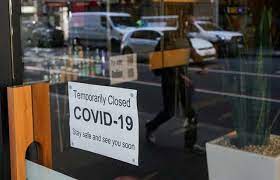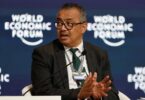SYDNEY (AFP): Australia announced Thursday an inquiry into its handling of the Covid-19 pandemic, which led to fortress-like travel restrictions, rolling lockdowns and a sluggish initial vaccine rollout.
The country imposed some of the world’s most stringent restrictions during the pandemic, sealing international borders for two years and locking down most major cities for months on end.
For much of the pandemic the strategy worked, but the relaxation of the rules led to a leap in detected cases. High vaccination rates limited the number of fatalities.
“It was a very disruptive period in our lives. But we got through it,” Prime Minister Anthony Albanese told reporters.
“We need to examine what went right, what could be done better with a focus on the future.”
The 12-month independent probe will examine the federal government’s response, the government said.
That includes the provision of vaccines, treatments and key medical supplies; financial help for people and businesses; mental health support; and assistance to Australians abroad.
It will also look at more than 20 earlier Covid-19 inquiries.
Some of those were organised by Australia’s states, which ran health-related measures such as lockdowns, testing, tracing, quarantine and hospitals as well as their own border controls.
In one notable lapse, a previous New South Wales inquiry found “serious” errors led to an outbreak when thousands of passengers were allowed to disembark from the Ruby Princess cruise ship in Sydney on March 19, 2020, before their Covid-19 test results were in.
Since January 2020, the country of 26 million people has recorded more than 11 million Covid-19 cases and 22,800 deaths, according to the World Health Organization.
“Now unquestionably is the time to learn the lessons of our response to this pandemic,” said Health Minister Mark Butler.
Australia needs to understand what it did well “but also what we could have done better” in responding to Covid-19, so that it can use those lessons in any future pandemic, he said.







